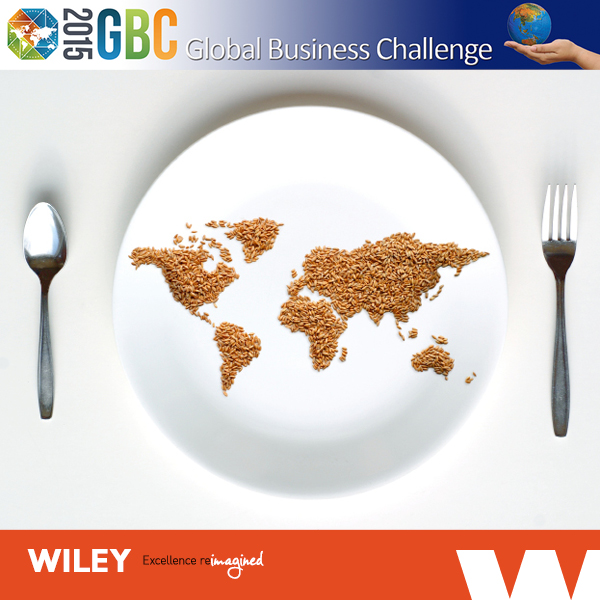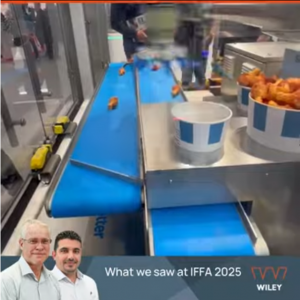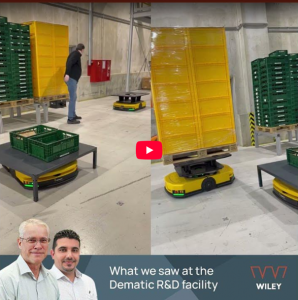A micro-farm that produces and processes edible insects, cultivating duckweed to feed farmed fish and livestock, and increasing catfish farming in Africa are just some of the innovative ideas to boost world food production proposed by finalists in the 2015 Global Business Challenge (GBC).
Wiley is proud to be sponsoring the inaugural Genesis Prize, providing in-kind professional services to one or more of the six finalists teams to the total value of $100,000 in this year’s GBC.
This year’s challenge: global food security.
It’s a chance to celebrate bright young minds from around the globe working together to explore creative opportunities to a pertinent global challenge.
Wiley’s Managing Director, Tom Wiley, is looking forward to collaborating on the judging panel and reviewing new and exciting approaches to connecting people and food in a better way.
Finalist Teams and ideas:
Team Mayisara – Symbiosis International University (India)
A sustainable and holistic model to integrate farmers with consumers, which ultimately increases a farmer’s revenue, while reducing consumer costs and waste.
Team C-Fu – Cornell University (USA) & Shulich School of Business, York University (Canada)
Using food science and biotechnology to develop the next generation of insect-based foods with excellent nutritional profiles and high consumer acceptability.
Team Exatio – Queensland University of Technology
A new cropping system to produce and commercialise the lemna aquatic plant, part of the duckweed family, to provide a sustainable, high-yield and high-value feed for intensive animal and fish farming.
Team Garbage Clinical Insurance – Brawijawa University (Indonesia)
Developing sustainable micro-finance schemes in poorer Indonesian communities to fund the collection and management of household waste to improve community health.
Team BioThinkers – Warsaw University, Warsaw School of Economics & Warsaw School of Life Sciences (Poland)
An eco-friendly, portable micro-farm – BugHub – to produce and process insects as a secure and sustainable food source in Africa.
Team Fish 4 Africa – Cape Town University (South Africa)
A replicable fresh-water aquaculture solution that produces a market-accepted, cost-effective catfish product to increase consumption in Africa.
The finalist teams are in the running for $125,000 in cash prizes, while Wiley will judge separately the commercial viability of each team’s project to select one or more for the Genesis Prize to help progress their solution.
“Wiley has long-championed innovation to develop more sustainable food production solutions. What impresses us most about the finalist teams’ projects is their combination of science and simplicity. We need to embrace technology and science and push the envelope with new ideas to find solutions but we also have to be pragmatic. Often it’s the simplest ideas that have the biggest impact.
We look forward to revealing the recipients of the Genesis Prize and sharing how Wiley is working with them to help feed the world.” Said Tom Wiley.
The finalist teams will be judged on the 6th November. Stay tuned for updates on our social platforms and blog.


